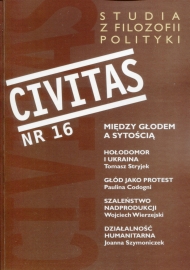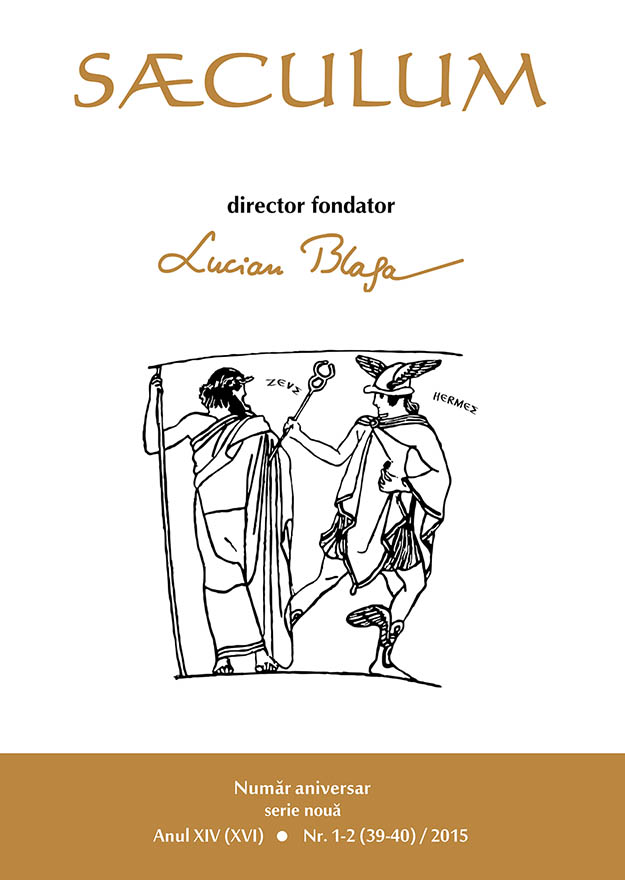We kindly inform you that, as long as the subject affiliation of our 300.000+ articles is in progress, you might get unsufficient or no results on your third level or second level search. In this case, please broaden your search criteria.

This article contains a summary of selected theses of the theory of the state developed by Hermann Heller, who was one of the leading representatives of the so-called Weimar Theory of the State. State theorists of the Weimar era formed an independent, formally unrelated group of scientists who had often opposing views, but were united by a common effort to conduct even philosophical investigation of the nature of the state, the European, continental state, as well as its internal ratio and mission. In addition to Hermann Heller, this group included Carl Schmitt, Rudolf Smend, Erich Kaufmann and Heinrich Triepel. They asked questions which are absent in today’s science, such as: “What is a state?”, “What kind of being is it and what is its nature?”. The answers determine many issues, including our perception of the durability and strength of the state, our understanding of its structure and development, the relation between the state and the individual and the relation between politics and history, etc. No settlement of this basic issue is not only simple negligence, but – as can be judged – it stems from today’s tacit assumption that the state is not a being, but only an artificial human construct, a combination of elements and a set of institutions. Heller perceives the state substantially: as particular organization of social affairs; organization of specific areas of public life: economy, law and public opinion. These were created in the modern era and have been specific to Europe from the sixteenth century to modern times. The matter of these areas is transformed into a state order by sovereign authorities. Therefore, their policies and their law have their concrete object whose reality they face, and they need to demonstrate that they are capable of organizing this reality. The ethos of the state and at the same time the legitimacy of its power require that elementary principles of justice are ensured, or at least injustice is eliminated from social life.
More...
The author suggests a reconsideration of the relation between reader and écriture, in the framework of the current crisis manifested in the field of reading texts edited and published in books. The work of Romanian medieval chronicle writers is being rediscovered, and its document value emphasized, encouraging citizens to rediscover it, in a call to a better knowledge of their own history. The main emphasis lies thereafter on the study called Problema cititului. Contribuții la estetica fenomenului literar [The Issue of Reading. Contributions to the Esthetics of the Literary Phenomenon], written in 1943 by poet, playwright and essayst Radu Stanca, former manager of the Theatre from Sibiu. Stanca's analysis rests upon certain themes such as ”Origins and nature of reading”, ”Types of reading”, ”Types of esthetically adequate reading” and ”Issues of literary education”. To Radu Stanca, the major problem seemed to be an insufficient literary education. As he put it, in the same way people need to learn how to sing, they also need to learn how to read esthetically. An unfortunate lack of literary education, similar to the one denounced by Stanca in 1943, is noticed by M. Posada in our contemporary times of the 21-st century. Even more, iliteracy can also be understood as an attack against the Truth of the Christian Word, of which an illiterate person is banned from reading and coming to know.
More...
The main purpose of this article is to compare the liberal and republican understanding of the role of political culture. The reconstruction of the liberal and republican elements of the political sphere demonstrates how these theories present the role of citizenship, government and democracy, thus revealing differences in the concepts of political culture. Firstly, the liberal concept of political culture is described as a practice that allows citizens to fulfil their individual interests. Liberal political culture helps to integrate people in the institutional framework, thus enabling them to realize their individual preferences without the state’s pressure to choose one particular model of a good life. Secondly, the republican model of political culture is analysed. It stresses citizens’ engagement in the public sphere and the role of positive freedom, based on an active search for common good and the cultivation of common practices supporting the state’s paternalistic techniques of integration. This type of culture allows citizens to achieve common moral development. In conclusion, it is argued that in the age of galloping globalization, these two normative models do not fit perfectly well into the Western social and political landscape because today we live in communities which embrace both the liberal and republican elements of political culture. Thus, it is demonstrated that there is some space for compromise between these two approaches, i.e. liberal republican culture.
More...
In characterizing a society, ancient or modern, there are two elements, closely interconnected: the economic system and the family system. The moral evolution of every society has to consider both elements and the way they influence each other. Bertrand Russell explained the influence of Marx, Freud and religion in the development of modern society and tried to identify the way of moral evolution to a positive morality, to happiness, to a society ruled by love and scientific truth and education.
More...
The article uses the example of the issue of instrumental reason and enlightened idea of progress to show the similarity between the conservative doctrine and the postmodern thought. It discusses the pessimistic, or even apocalyptic nature of both of these world views as well as their nostalgia for the past. The article also analyzes basic differences in the way the two world views perceive the “metaphysics of presence”. Without denying the importance of these differences, it was proved that the thesis of the "death of God" articulated by postmodernists is not a strong value judgment and only shows the trends of thought in the contemporary world. Moreover, both world views are characterized as longing for the lost “metaphysics of presence”, which shows the possibility of their mutual synthesis, which in turn can be defined as postmodern conservatism.
More...
The receiver of a message can grasp the emitent’s intention only under the hypothesis that the language is a system of signs. Regarding to the meaning of signs there are several points of view: some authors hold that the meaning is a concept while others identify the meaning of a sign with an object. Also, the contextualists claim that the meaning can be either a concept or an object according to the context and the synthetic theory assumes that meaning is the unity between concept and object. On the other hand, the realists accept that the meaning is the same with the understanding and nominalists consider that meaning is only a form of understanding. The problem of understanding can be solved only if the nominalist and relativist perspectives are accepted.
More...
Agnieszka Gromkowska-Melosik: Kobieta epoki wiktoriańskiej. Tożsamość, ciało i medykalizacja, Oficyna Wydawnicza Impuls, Kraków 2013, ss. 191.
More...
Tea Vincetić, Obitelj Ivona Baković, Cvati tamo gdje si posijan
More...
Freedom of expression and the right to privacy - as complex and fundamental human rights - are guaranteed by the Romanian Constitution and by a number of global human rights treaties. These fundamental rights often come in conflict and is very difficult to decide the preeminence of one to another. Freedom of expression and the right of privacy are not absolut rights, so they can be limited when they conflict other rights. The new civil code sets, for the first time in our national legal system, the facts that can be consider interference with the private life.
More...
„Kada na rijeci Seni iz urne prosuše pepeo kremiranog tijela ubrzanim ritmom, kao pod dirigentskom palicom najpoznatijeg suvremenog dirigenta, odjednom se začuše glasovita zvona okolnih crkava. Šutite zvona! Niste zvona naših crkava! Kao da buntovnički reagiraše čestice njegovoga kremiranog tijela, sada pretvorenog u prah i pepeo, kada ih, nemilosrdno i zauvijek, proguta i poždera nečista voda mutne rijeke…!“
More...
How much of what we live is ours – the clear, natural, pure result of our own thoughts, decisions, options, values, life strategies? And how much of our life is manipulation? As a political journalist I well know manipulation, because it is the queentechnique of mass-media and politics. But is there a good manipulation, too? Do we feel the need to be manipulated, because the truth is not always that desirable? If we want to understand the profound mechanism of manipulation, I dare you to look for it not in the usual places we are used to finding it, but in a taboo area, where few enter with the critical eye open – religion.
More...